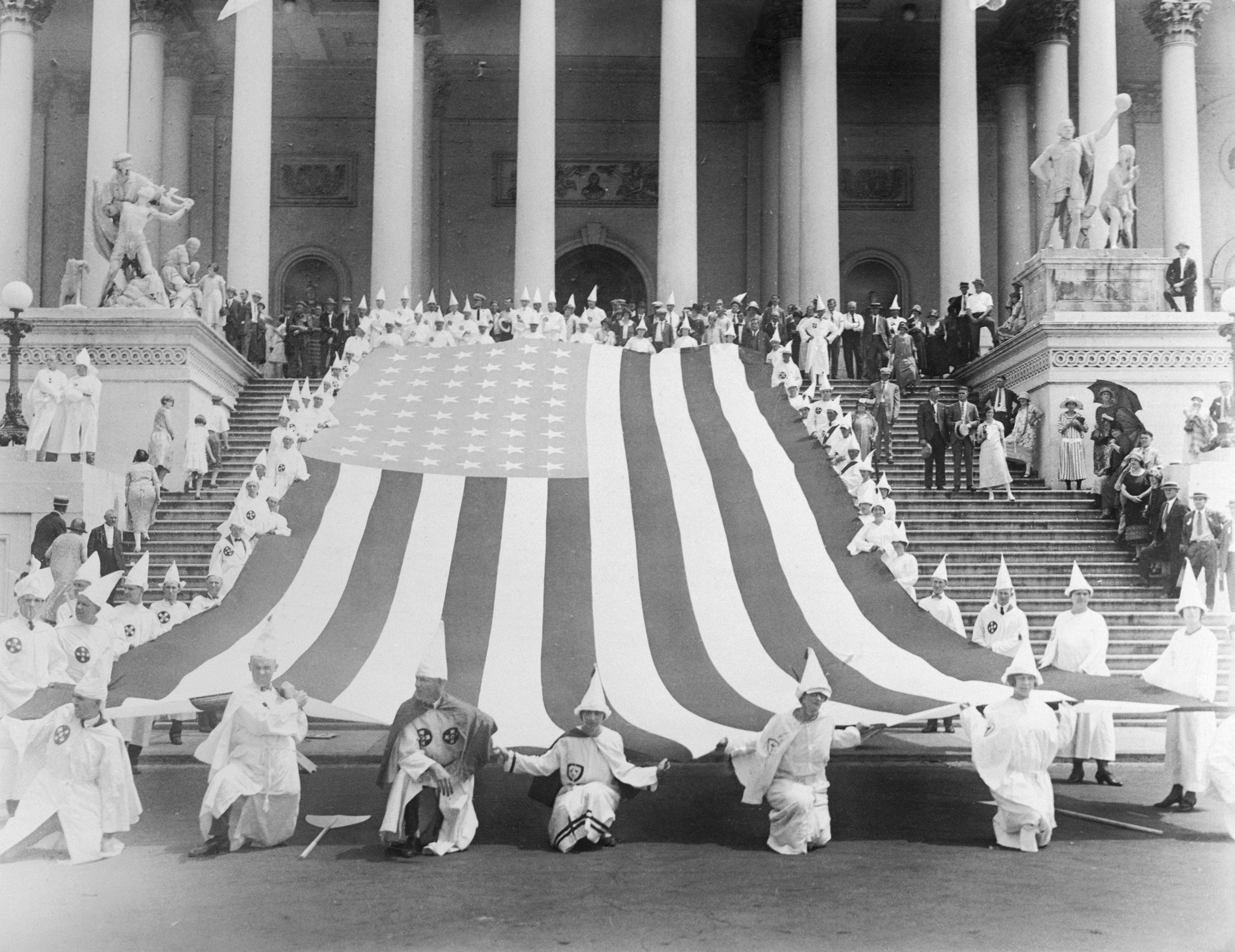A federal law aimed at quelling violence by the Ku Klux Klan and authorized 150 years ago by President Ulysses S. Grant is central to legal action taken against alleged conspirators behind the January 6 attack on the U.S. Capitol.
In a federal lawsuit filed on Tuesday, February 16, House Homeland Security Chairman Bennie Thompson (D-Miss.), cited the Ku Klux Klan Act of 1871 to pursue legal action aimed at those who participated in the January 6 attack on the Capitol. The lawsuit, according to the Washington Post, “accuses former president Donald Trump, his lawyer, Rudolph W. Giuliani, and members of the Proud Boys and Oath Keepers of conspiring in violation of the Klan Act to prevent Congress from certifying Joe Biden’s victory in the 2020 election.”
Officially titled the Third Enforcement Act, the legislation — signed by President Ulysses S. Grant in April of 1871 — made it a federal crime to use “force, intimidation, or threat to prevent, hinder, or delay the execution of any law of the United States, or by force to seize, take, or possess any property of the United States contrary to the authority thereof, or by force, intimidations, or threat to prevent any person from accepting or holding any office…or from discharging the duties thereof.”
Originally passed into law as a federal response to the Ku Klux Klan’s often violent tactics of voter suppression, “Grant dealt with it aggressively, using all the instruments at his disposal,” Ron Chernow wrote in his 2017 biography of Grant.
“Klan violence was unquestionably the worst outbreak of domestic terrorism in American history,” Chernow continued.
Created in Pulaski, Tennessee in 1865, the Ku Klux Klan began as a fraternal organization of Confederate veterans that quickly evolved into a vehicle for white supremacists to resist Reconstruction-era policies. After the death of Abraham Lincoln and through the relatively weak and ineffective policies of his successor, Andrew Johnson, Klan violence was peaking in the South as Grant took office in 1869.
“We have just passed through an Election which, for rancour and virulence on the part of the opposition, has never been excelled in any civilized community,” South Carolina’s Republican governor, Robert K. Scott, wrote to Grant twice on October 22, 1870. “Colored men and women have been dragged from their homes at the dead hour of night and most cruelly and brutally scourged for the sole reason that they dared to exercise their own opinions upon political subjects.”
Robert Burns of Lexington, Kentucky wrote to Grant “to know if there is a law in this free land of ours that will protect and guarantee safety against the Rebel prowlers that infest every nook and corner, better known as K.K.K’s, who are armed and ready to take the life of any one if they do not endorse treason and rebellion.”
Grant’s response was a swift and resounding no, and he relentlessly enacted laws to begin to go after domestic terrorists intent on violently violating the democratic process. In 1870 the Civil War hero oversaw the creation of the Justice Department, whose first duty was to bring indictments against members of the Ku Klux Klan who had previously escaped prosecution.
In 1870 and 1871 Grant signed two successive Enforcement Acts; the first prohibited people from banding together “or to go in disguise upon the public highways, or upon the premises of another” with the intent of violating citizens’ constitutional rights; the second placed national elections under the control of the federal government and empowered federal judges and United States marshals to supervise local polling places.
The Ku Klux Klan Act of 1871 further gave the president the power to use the military to stop “insurrection, domestic violence, unlawful combinations, or conspiracies” in cases where the state government failed to intervene. It also allowed for Grant for one year to “suspend the privileges of the writ of habeas corpus, to the end that such rebellion may be overthrown.”
While an 1883 U.S. Supreme Court ruled that a provision of the act allowing Congress to punish private citizens interfering with Fourteenth Amendment was unconstitutional, much of Klan Act remains intact today. Namely Title 42, sections 1983, 1985 and 1986 of the U.S. Code, which allow people to sue over violations of their civil rights, according to the Washington Post.
“By 1872, the federal government’s willingness to bring its legal and coercive authority to bear had broken the Klan’s back and produced a dramatic decline in violence throughout the South,” writes historian Eric Foner in A Short History of Reconstruction. The Klan did not see a resurgence until 1915.
Grant’s presidency has largely been eclipsed by his naiveté in business and plagued by political scandals, yet “it would be nearly a century,” writes historian H.W. Brands, “before any other president demonstrated a similar commitment to civil rights.”





